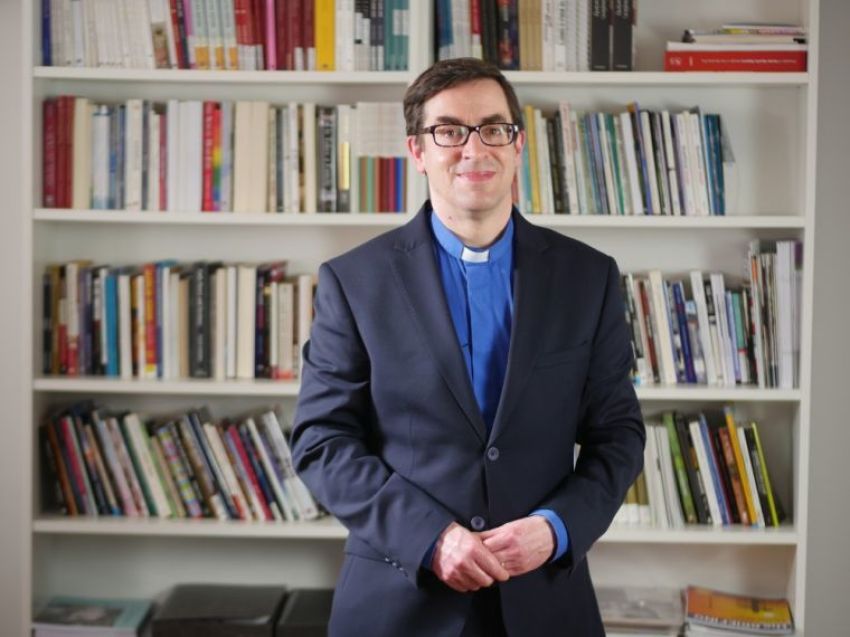Chaplain blacklisted by CofE for teaching Christian views on gender identity takes archbishop to court
'I long to see a Church that is healthy and strong, unashamedly proclaiming the Gospel of Jesus Christ,' says the Rev. Bernard Randall

The Rev. Bernard Randall, an ordained Church of England chaplain, has taken legal action against Archbishop of Canterbury Justin Welby for blocking a disciplinary case against the Bishop of Derby, the Rt. Rev. Libby Lane, who labeled Randall a safeguarding risk due to his traditional Christian views on gender identity.
The Judicial Review, scheduled for Tuesday at the Royal Courts of Justice, challenges Welby’s decision to prevent an investigation into Lane’s actions following Randall’s sermon on identity politics, said the Christian Legal Centre (CLC), which is supporting Randall, in a statement to The Christian Post.
Randall argues that Welby “misunderstood the scope of his powers” in blocking the complaint, which alleges that he misused safeguarding processes without evidence, deeming the chaplain a risk to students.
According to a senior CofE legal officer for clergy discipline, Welby’s decision to stop the case was “plainly wrong,” said CLC.
Randall was blacklisted after delivering a sermon at Trent College in Derbyshire in 2018, questioning the teachings of Educate and Celebrate, a group later disbanded due to scandals. Despite Randall being cleared by entities including Prevent, the LADO (Local Authority Designated Officer), the TRA (Teaching Regulation Agency) and the DBS (Disclosure and Barring Service), the CofE maintains its ban on his ministry, citing safeguarding concerns.
The ongoing restrictions have blocked Randall’s employment in ministry roles. He has been turned down for multiple positions and remains unemployed since being dismissed by Trent College in 2020. The college also reported Randall to the government’s counter-terrorism watchdog, Prevent, though no evidence of extremism was found.
Ahead of the Judicial Review, Randall will submit a petition signed by over 38,000 people demanding an apology from Welby and the reinstatement of his career. He argues that safeguarding has been “weaponized as a political tool” against his theological beliefs.
“The failure to hold anyone to account for such deeply flawed processes is a scandal. It looks like a whitewash, as if the Archbishop’s knee-jerk reaction was to protect a senior colleague, rather than to seek justice or reconciliation, even to the extent of ignoring a safeguarding complaint,” Randall said.
Randall claims his case demonstrates how “the [CofE] has closed ranks to protect senior people.”
Bishop Lane is accused of flawed safeguarding processes based on “stereotyping on the grounds of belief.” Lawyers for Randall argue that he faced harassment due to his beliefs without credible evidence.
In July 2021, Randall was asked to undergo an independent safeguarding assessment by a psychologist specializing in sex offenders. He refused, seeing it as an admission of wrongdoing, leading to a recommendation that his license not be renewed. The decision was based not on his actions but on what he “might” do if approached by someone with questions about sexuality.
After his license was refused, Randall lodged a formal complaint against Lane under the Clergy Discipline Measure 2003. In July 2022, Welby dismissed the complaint, citing insufficient evidence. Randall requested a review, and in June 2023, Gregory Jones K.C. overturned much of Welby’s ruling, finding that the investigation lacked credible evidence of harm. Jones noted a lack of accountability and clarity in the CofE's processes.
Welby later reviewed Jones’ findings, dismissing nine of 13 allegations against Lane, stating bishops should not intervene in safeguarding processes unless in “the most egregious circumstances.” Jones, however, described the case as “egregious and the error gross.”
In September 2023, Dame Sarah Asplin, president of Tribunals, concluded that Lane did not have a case to answer, attributing safeguarding failures to other CofE officers without identifying individual accountability. Despite noting “serious errors in the process,” she ruled against convening a tribunal. This forced Randall to seek a Judicial Review.
Nine months after Dame Asplin’s ruling, Randall still hasn't regained his ministry license. “I long to see a Church that is healthy and strong, unashamedly proclaiming the Gospel of Jesus Christ,” said Randall. “As it stands, the Church of England is not that Church.”



























